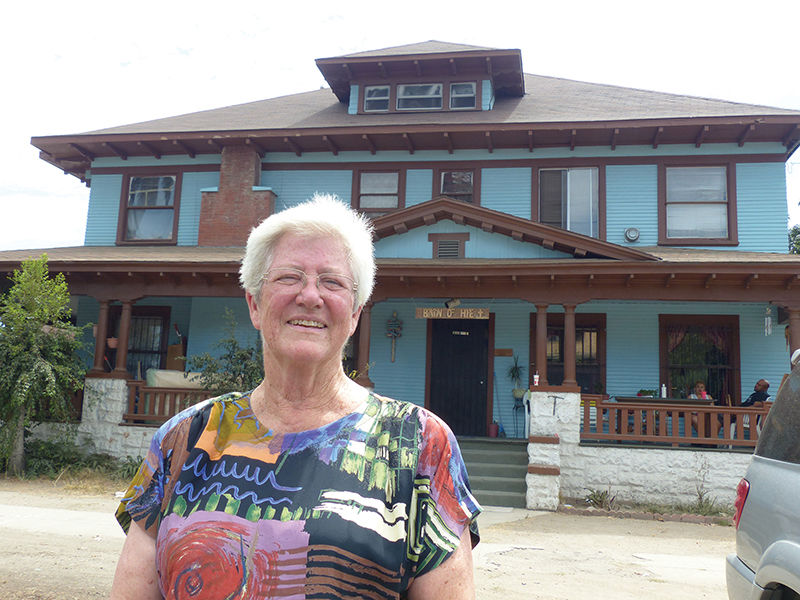“I think being locked up for a long time produces PTSD, Post-Traumatic Stress Disorder,” says Sister Mary Sean Hodges. The Dominican Sister of Mission San Jose has worked directly with lifers for more than 15 years, after spending four decades as a teacher and principal. In 2002, she started PREP, Partnership for Re-Entry Program, to support inmates with lengthy sentences getting out of prison.
“I think it puts into a person a slowness, or inability, to get out and to take on the initiative to move ahead to feel again a part of society. Especially today, the society that they left is not the society they’re coming out to. It’s changed so drastically.
“If a person goes in as a teenager, they’ve missed their whole young adulthood growing up in a normal situation,” she points out. “They’ve just missed a whole phase of their life. So when they get out, they have to find out what’s normal for them in the outside world. And that’s where PREP comes in. But it’s difficult.”
Sister Mary Sean knows all about Kristen Bell’s research. She says it “very, very true” that high-level security prisons and units in California don’t offer much in the way of life-changing programs or educational opportunities or, for that matter, any kind of social interaction.
“I go to the high-security prisons,” she reports. “I give them our program. And then I say to them, ‘OK, can you just finish this?’ And that’s an impossibility because they’re so isolated in their cells. They don’t have the ability to finish it. Nor do they have the motivation because most of them feel, ‘Why should I?’”
The former educator praises the staff at Pelican Bay and other state prisons who are putting into practice the “Step Down Program” with its goal of getting inmates out of solitary-confinement units, like the SHU. She calls it a “great step forward.”
And like researcher Bell, the woman religious knows about prisoners being denied parole because of their troubled background — instead of it being a mitigating factor for parole. “That’s true,” she reports. “They’re denied because of their unstable social background. And what can they do about it? Nothing!”
She’s also well aware that parole hearings in California are conducted by a single commissioner and his or her deputy. She believes it’s the only way to keep the whole overcrowded mess moving along. “The system is so massive that if they tried to have more commissioners present, it would just really slow the system down,” she points out. “My concern is that the inmate, as well as the victim, should be allowed to have a support person present. But they aren’t.”
So what about the Soros Justice Fellow saying that having just one parole board member present is a “recipe for arbitrary decisions?”
Sister Mary Sean says it really comes down to whether the commissioner has a restorative justice perspective about putting things right with society or a mainly punishment perspective. In the past, she says commissioners all came from law enforcement or legal professions with axes to grind. She hopes that’s changing.
“I just highly, highly praise what Kristen has done,” says PREP’s creator. “She is a deep researcher. She has passion for the work she does. And she has hands-on experience working with youth offenders in Lancaster [State Prison]. So she’s more than an academic.
“And that’s important, that’s rare. You know, it’s nice to study all those [parole hearing] transcripts and to learn it on paper. But the depth of her learning is so much better because of the way she’s done her study, reaching out and working with these youth offenders.
“I mean,” Sister Mary Sean stresses, “she lives what she believes about mercy for these guys who have been locked up so long for crimes they did when they were so young.”
See related story here: A mission to sew mercy in California's prison system

